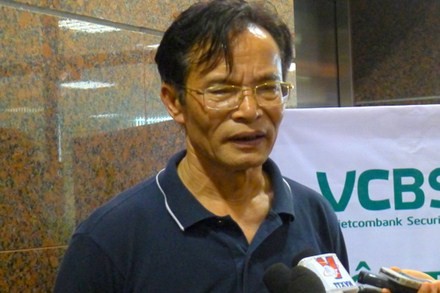|
Who dares sell “big SOE
guys”?
The equitization of state owned
enterprises (SOEs) has got stuck. Weak enterprises cannot find the buyers,
while no state’s official dares to make decisions on selling good enterprises
with the prefix of “Vina” in their names, because they fear they mistakenly
sell the enterprises at a loss.
Speeding up the SOE equitization is the important task
mentioned in most of the state’s and party’s important resolutions.
Cheap goods cannot find buyers
A report of the Ministry of Planning and Investment
showed that 909 SOEs, or 73 percent, are subject to the restructuring (they
have either to undergo the equitization or ownership restructuring). However,
to date, only 5 SOEs have undergone the equitization or have withdrawn their
capital from 62 enterprises.
The latest report of the Enterprise Development Agency
said 76 SOEs belonging to 23 state owned economic groups have asked for the
delay of the equitization plan until the years after 2015.
The equitization delay has been attributed to the
gloomy stock market, which has made the stock prices fall down dramatically.
If the State still wants to equitize its enterprises at this moment, it would
have to sell them at a loss.
The problem is that the managers of SOEs and
ministries’ high ranking officials, who have the responsibility of preserving
the state’s capital, dare not bargain the enterprises away just to fulfill
the equitization plan.
However, foreign investors have repeatedly urged
The government’s spokesman, Minister Vu Duc Dam, also
admitted at a recent press conference that in some cases, it would be better
to sell some businesses right now for low prices, because the prices may even
fall down further in the future.
However, a question has been raised that who would buy
weak SOEs?
“Someone asks me what to do to rescue SOEs. I said to
them that it’s necessary to sell parts of stakes to foreign investors, who
could be the new owners who have good corporate governance skills, high
technologies and professional managing staffs,” said Le Xuan Nghia, a well
known economist, who was Deputy Chair of the National Advisory Council for
the Monetary Policy,
Nghia calls the action as “selling to rescue”, i.e.
selling the state’s stakes in big and good enterprises and use the money from
the deals to rescue the weaker enterprises.
For example, the State should consider selling the
stakes at Vinamilk, the leading dairy producer in
If the State does this, it would have tens of trillions
of dong which can be used for many other purposes. If it doesn’t, it would
have to wait 40-50 years more to receive the similar benefits.
Le Dang Doanh, a well-known economist, highly
appreciates the idea, saying that the State should consider selling good and
big SOEs, provided that the SOEs do not operate in the business fields which
make strategic products for the nation.
However, Doanh still believes that there is still
demand for weak enterprises, which means that selling small and unprofitable
enterprises would still be feasible.
Source:
Lao Dong
|
Thứ Sáu, 14 tháng 6, 2013
Đăng ký:
Đăng Nhận xét (Atom)

Không có nhận xét nào:
Đăng nhận xét